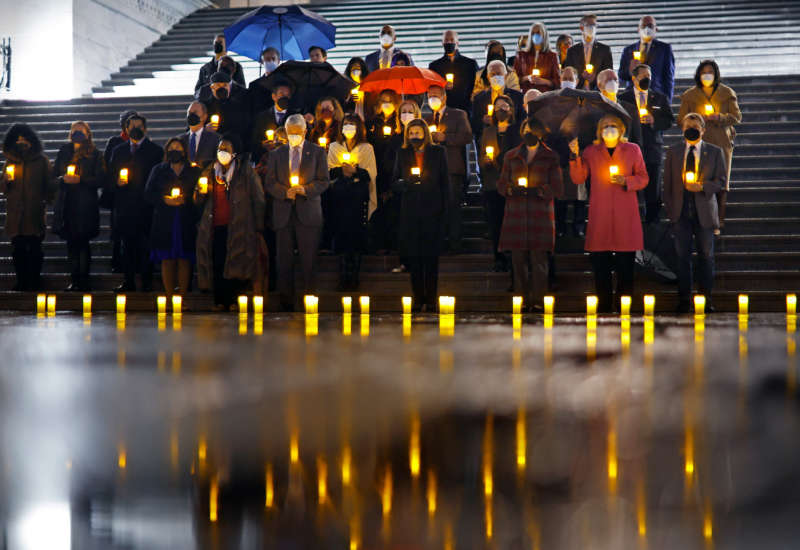On Tuesday, the White House announced that the government may soon have to stop providing free COVID vaccines, testing and treatments for uninsured people because Congress failed to approve more funding to address the pandemic in recent spending packages.
If COVID funding continues to stall, providers won’t be able to submit claims for COVID testing and treatments starting next week, the White House warned. In April, the program will run out of funds to allow people without health insurance to get COVID vaccines for free.
People without health insurance have been at a higher risk of dying due to COVID throughout the pandemic. If the funding for this program lapses, it will create even greater disparities between health outcomes for insured and uninsured people, leaving uninsured people to fend for themselves amidst a pandemic that is still taking the lives of over a thousand people on average each day.
The cuts to funding would come as Pfizer is seeking authorization for an additional COVID dose for seniors and saying that a fourth dose may eventually be necessary for everyone to have immunity against severe infection and death. If people without insurance have to pay out of pocket for the vaccine, it could deter people from getting the booster, increasing their risk of catching and spreading the virus.
Meanwhile, for some people without insurance, COVID treatments could be out of reach altogether. Receiving the actual drug for monoclonal antibody treatment is currently free for everyone, though the administration of the treatment is still subject to costs. Out of pocket, treatments like that of Regeneron could cost between $3,000 and $5,000 a dose, some experts estimate.
Last week, under pressure to keep the government from shutting down and to provide aid to Ukraine, the House passed a government funding bill that notably excluded a provision to provide $15.6 billion for COVID aid as the country enters the third year of the pandemic. House Speaker Nancy Pelosi (D-California) described the exclusion as “heartbreaking.” Democrats have pledged to bring the funding to a separate vote.
The funding was removed after Republicans refused to approve new spending to address the pandemic. Democrats proposed reappropriating some of the funding left over from last year’s pandemic stimulus, but that upset members of both parties from states that would have lost out on funding under that proposal.
“Republicans resisted this deeply needed funding, demanding that every cent requested by the Administration be offset, including through state and local funds scheduled to be released this spring,” Pelosi said in a letter to colleagues at the time.
Putting uninsured people in the crosshairs of COVID because of $15 billion in government spending is cruel, especially after lawmakers voted to spend $782 billion on military funding in the same bill — 52 times the proposed pandemic funding.
Though Republicans don’t seem to take issue with the fact that the Department of Defense has never passed an audit and hides hundreds of billions of dollars in spending, they insisted that the White House be able to account for all of the details of the COVID proposal it sent to Congress, which was originally $22.5 billion. They also cited concerns about the deficit to justify their opposition.
Even if the spending would have added significantly to the deficit, which it likely wouldn’t have, economists have said that a worldwide pandemic that has killed nearly a million people in the U.S. is a perfect reason to add to the deficit.
Further, data has shown that current concerns over the deficit are entirely unfounded; research has found that the deficit is actually slated to decrease by over $1 trillion in 2022, a fact that so-called deficit hawks in Congress are conveniently ignoring.


